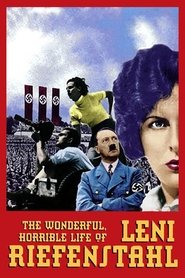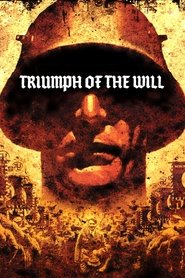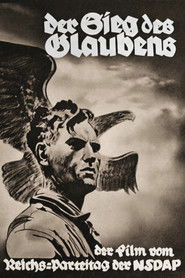detail profile walter frentz
Peran Yang Di Mainkan Walter Frentz
 This documentary recounts the life and...
This documentary recounts the life and...The Wonderful, Horrible Life of Leni Riefenstahl 1993
This documentary recounts the life and work of one of most famous, and yet reviled, German film directors in history, Leni Riefenstahl. The film recounts the rise of her career from a dancer, to a movie actor to the most important film director in Nazi Germany who directed such famous propaganda films as Triumph of the Will and Olympiad. The film also explores her later activities after Nazi Germany's defeat in 1945 and her disgrace for being so associated with it which includes her amazingly active life over the age of 90.
 Commissioned to make a propaganda film...
Commissioned to make a propaganda film...Olympia: Part Two – Festival of Beauty 1938
Commissioned to make a propaganda film about the 1936 Olympic Games in Germany, director Leni Riefenstahl created a celebration of the human form. Where the two-part epic's first half, Festival of the Nations, focused on the international aspects of the 1936 Olympic Games held in Berlin, part two, The Festival of Beauty, concentrates on individual athletes such as equestrians, gymnasts, and swimmers, climaxing with American Glenn Morris' performance in the decathalon and the games' majestic closing ceremonies.
 Commissioned to make a propaganda film...
Commissioned to make a propaganda film...Olympia: Part One – Festival of the Nations 1938
Commissioned to make a propaganda film about the 1936 Olympic Games in Germany, director Leni Riefenstahl created a celebration of the human form. This first half of her two-part film opens with a renowned introduction that compares modern Olympians to classical Greek heroes, then goes on to provide thrilling in-the-moment coverage of some of the games' most celebrated moments, including African-American athlete Jesse Owens winning a then-unprecedented four gold medals.
 Filming of the performance show the...
Filming of the performance show the...Day of Freedom 1935
Filming of the performance show the Deutsche Wehrmacht (German Army) made during the Reichsparteitag of the NSDAP in Nurnberg 1935. Showing the readiness and the will of the newly build army. The third documentary directed by Leni Riefenstahl.
 A showcase of German chancellor and...
A showcase of German chancellor and...Triumph of the Will 1935
A showcase of German chancellor and Nazi Party leader Adolf Hitler at the 1934 Nuremberg Rally.
 Follows the Fifth Nazi Party Rally...
Follows the Fifth Nazi Party Rally...The Victory of Faith 1933
Follows the Fifth Nazi Party Rally (Nuremberg, 30 August–3 September 1933) and shows the then close relationship between Adolf Hitler and Ernest Rõhm.

